🌼 What is Manjal Karisalankanni (Eclipta prostrata)?
Manjal Karisalankanni, also known as Yellow Bhringraj or False Daisy, is a revered herb in traditional Indian medicine systems like Ayurveda and Siddha. It is renowned for its hepatoprotective, hair-nourishing, and skin-enhancing properties. The term “Manjal” refers to the yellow variety of Karisalankanni, distinguished by its yellow flowers.
🌿 Description of Manjal Karisalankanni Plant
-
Botanical Name: Eclipta prostrata
-
Family: Asteraceae
-
Common Names: False Daisy (English), Manjal Karisalankanni (Tamil), Bhringraj (Sanskrit)
-
Plant Type: Creeping annual herb
-
Leaves: Small, lance-shaped, green leaves
-
Flowers: Small, yellow, daisy-like flowers
-
Habitat: Thrives in moist, tropical regions; commonly found in India, including Tamil Nadu
🌟 Medicinal Properties of Manjal Karisalankanni
Manjal Karisalankanni is celebrated for a multitude of health benefits:
-
Liver Health: Supports liver function, aids in detoxification, and is used in treating conditions like jaundice and hepatitis.
-
Hair Care: Promotes hair growth, prevents premature graying, and strengthens hair roots.
-
Skin Health: Helps in treating skin conditions and enhances complexion.
-
Digestive Aid: Improves appetite, aids digestion, and alleviates gastrointestinal issues.
-
Women’s Health: Eases postpartum uterine pain and regulates menstrual bleeding.
🧪 Active Compounds in Manjal Karisalankanni
The therapeutic effects are attributed to its rich phytochemical content:
-
Wedelolactone: Exhibits anti-inflammatory and hepatoprotective properties.
-
Demethylwedelolactone: Contributes to liver health and skin benefits.
-
Flavonoids and Alkaloids: Provide antioxidant benefits, protecting against oxidative stress.
🍵 Usage and Dosage
Manjal Karisalankanni can be utilized in various forms:
-
Powder: Consume 1–2 grams mixed with warm water or milk, once or twice daily.
-
Decoction (Kashayam): Boil 5–10 grams of dried leaves in 200 ml of water until it reduces to 50 ml; drink once daily.
-
Capsules/Tablets: Standardized extracts are available; follow the manufacturer’s dosage instructions.
-
Topical Application: Apply oil infused with the herb to the scalp to promote hair health.
Note: Dosage may vary based on individual health conditions. It is advisable to consult a healthcare professional before starting any herbal regimen.
⚠️ Precautions
-
Pregnancy and Lactation: Use under medical supervision; potential effects during pregnancy and breastfeeding are not well-studied.
-
Allergic Reactions: Perform a patch test before topical application to check for skin sensitivity.
-
Medical Conditions: Consult a healthcare provider if you have underlying health conditions or are on medication.
🌿 Organic and Ethical Considerations
-
Purity: Ensure the product is free from contaminants, additives, and artificial preservatives.
-
Sourcing: Opt for Manjal Karisalankanni sourced from sustainable and ethical farming practices.
-
Certifications: Look for certified organic products to guarantee quality and environmental responsibility.
🌿 Nutritional Profile of Eclipta prostrata
Eclipta prostrata is rich in essential nutrients and bioactive compounds that contribute to its medicinal properties:
-
Protein: Approximately 7.08–21.56 g per 100 g dry weight (DW)
-
Dietary Fiber: Around 13.78–22.26 g per 100 g DW
-
Ash Content: Between 8.21–21.43 g per 100 g DW
-
Carbohydrates: Leaves contain 36.21–39.91 g per 100 g DW; roots have 51.92–65.54 g per 100 g DW
-
Minerals:
-
Potassium (K): Up to 5174.82 mg per 100 g DW
-
Calcium (Ca): Approximately 2221.33 mg per 100 g DW
-
Magnesium (Mg) and Copper (Cu): Present in significant amounts
🧪 Active Compounds and Their Benefits
The therapeutic effects of Eclipta prostrata are attributed to its rich phytochemical content:
-
Wedelolactone and Demethylwedelolactone: Exhibit hepatoprotective and anti-inflammatory properties
-
Flavonoids: Provide antioxidant benefits, protecting against oxidative stress
-
Alkaloids: Contribute to the plant’s medicinal properties
-
Essential Oils: Contain thujone, 1,8-cineole, and β-pinene, which have various biological activities
📏 Recommended Dosage Guidelines
Dosage may vary based on individual health conditions. It is advisable to consult a healthcare professional before starting any herbal regimen.
Oral Consumption
Topical Application
-
Oil: Apply 3–5 drops to the scalp or affected area, 2–3 times a week
-
Paste: Mix powder with water or oil and apply to the scalp or skin as needed
⚠️ Precautions
-
Pregnancy and Lactation: Use under medical supervision; potential effects during pregnancy and breastfeeding are not well-studied
-
Allergic Reactions: Perform a patch test before topical application to check for skin sensitivity
-
Medical Conditions: Consult a healthcare provider if you have underlying health conditions or are on medication
Manjal Karisalankanni, scientifically known as Eclipta prostrata, is a revered herb in traditional medicine systems like Ayurveda, Siddha, and Unani. Commonly referred to as Bhringraj or False Daisy, this plant is renowned for its multifaceted health benefits. It is traditionally utilized for promoting hair growth, preventing hair loss, and delaying premature graying, earning it the moniker “King of Hair” in Ayurvedic texts. Beyond hair care, Eclipta prostrata exhibits hepatoprotective properties, making it beneficial for liver health and treating conditions like jaundice and hepatitis. Its anti-inflammatory and antimicrobial attributes aid in managing skin ailments such as eczema, dermatitis, and wounds. The plant also supports respiratory health, addressing issues like asthma and bronchitis, and contributes to overall wellness by enhancing immunity and reducing stress. Key phytochemicals present include wedelolactone, desmethylwedelolactone, flavonoids, and triterpenoids, which underpin its therapeutic effects. Cultivated widely across tropical and subtropical regions, especially in India, Manjal Karisalankanni thrives in moist, sunny environments. Its versatility extends to culinary uses in certain cultures, where it’s incorporated into traditional dishes. Given its extensive applications, relevant tags and keywords encompass: Manjal Karisalankanni, Eclipta prostrata, Bhringraj, False Daisy, Ayurvedic herb, hair growth, liver tonic, skin health, anti-inflammatory, antimicrobial, hepatoprotective, traditional medicine, phytochemicals, wedelolactone, flavonoids, triterpenoids, herbal remedy, natural supplement, and medicinal plant.

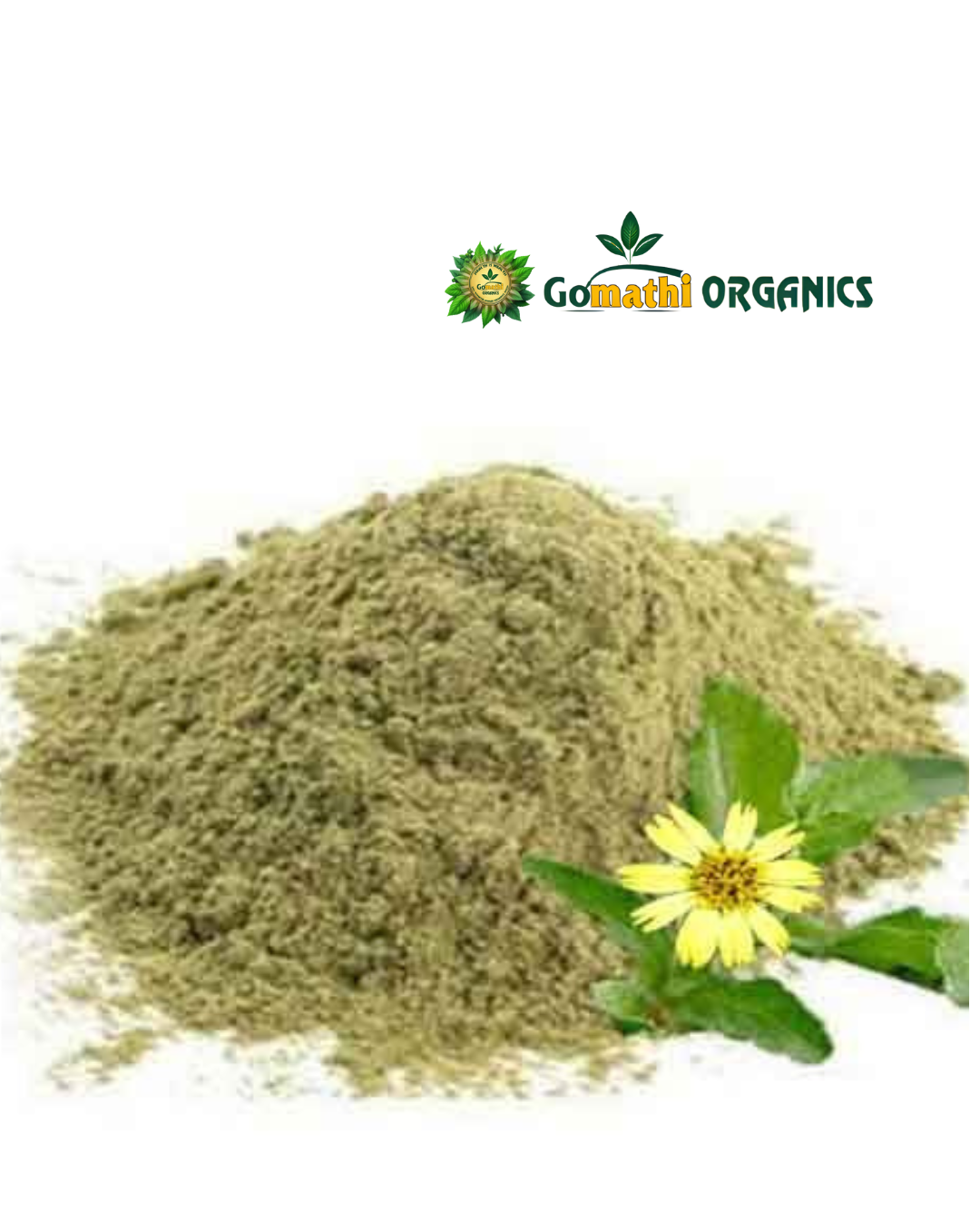
 SCIENTIFICALLY TESTED & COMPLETELY SAFE. SUITABLE FOR VEGETARIANS. NOT TESTED ON ANIMALS/NO ANIMAL INGREDIENTS. NO KNOWN SIDE EFFECTS. COMPLETELY SAFE. NON-TOXIC. FREE FROM HEAVY METALS
SCIENTIFICALLY TESTED & COMPLETELY SAFE. SUITABLE FOR VEGETARIANS. NOT TESTED ON ANIMALS/NO ANIMAL INGREDIENTS. NO KNOWN SIDE EFFECTS. COMPLETELY SAFE. NON-TOXIC. FREE FROM HEAVY METALS 

 The Food and Drug Administration has not evaluated these Statements. This product is classified as an “Herbal Food Supplement” and is not designed to diagnose, treat, cure, or prevent any disease. If you have any underlying health conditions, please consult a healthcare professional before using this product
The Food and Drug Administration has not evaluated these Statements. This product is classified as an “Herbal Food Supplement” and is not designed to diagnose, treat, cure, or prevent any disease. If you have any underlying health conditions, please consult a healthcare professional before using this product 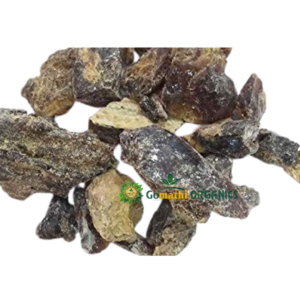
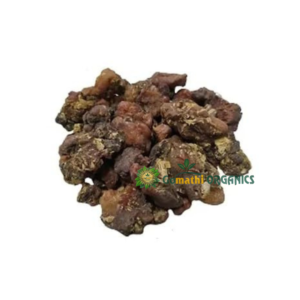
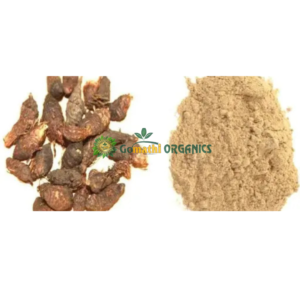
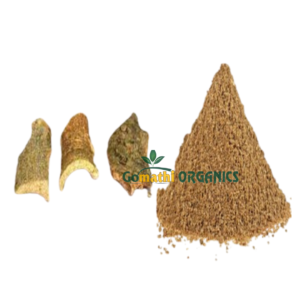
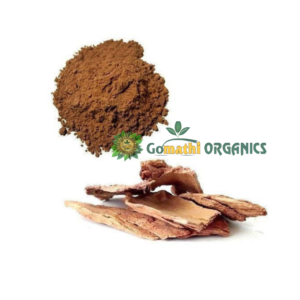
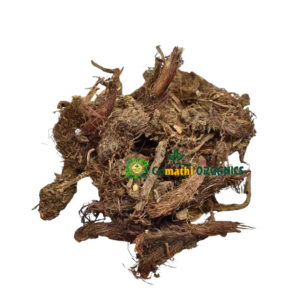

Reviews
There are no reviews yet.